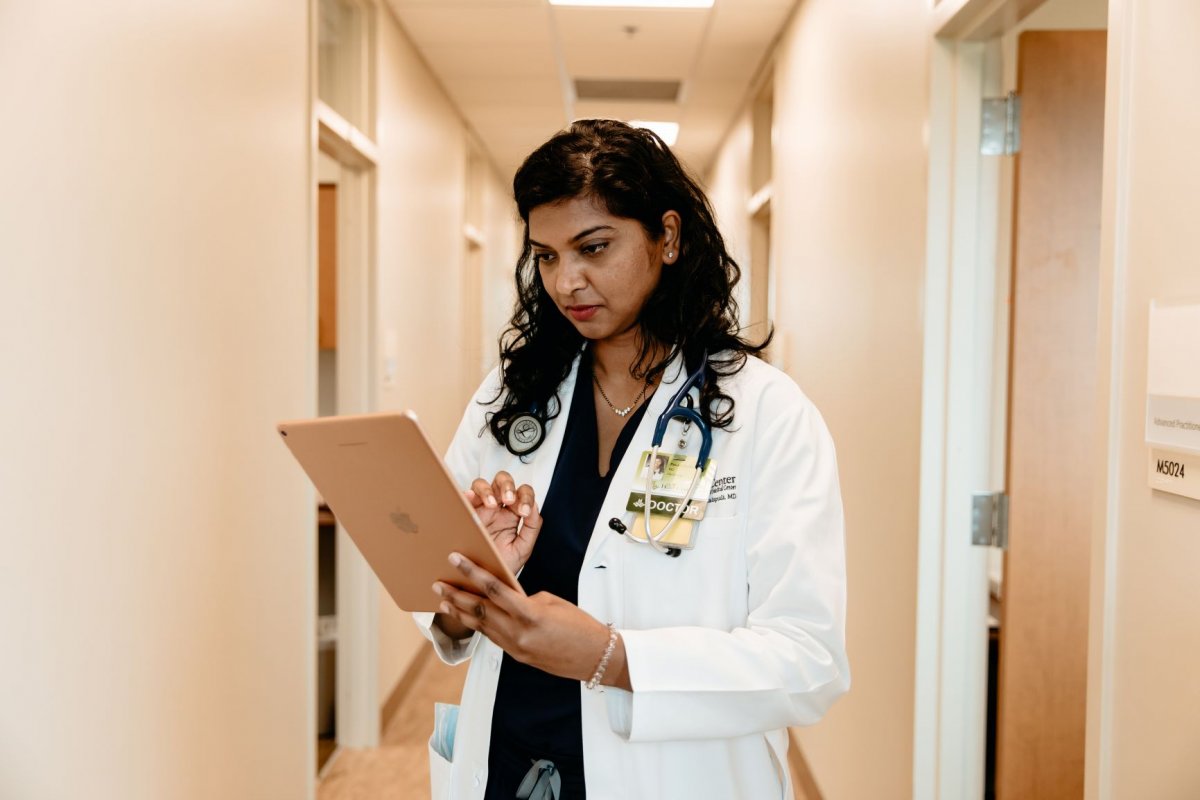There’s no shortage of reasons to take heart health seriously. Not only is heart disease the leading cause of death, but it’s also preventable and treatable. You can take steps each day to support heart health – from eating a healthy diet and getting routine exercise to managing stress and maintaining a healthy weight. But the fact remains, working with your cardiologist is one of the best ways to ensure overall heart health.
Whether you routinely see a cardiologist or you’re just starting out, it’s always important to make the most of your appointments. While your cardiologist is an expert in the prevention, detection and treatment of heart conditions, your understanding and comfort is most important – and can ensure even better health outcomes.
To help you maximize your next appointment with your cardiologist, here are 6 conversation starters:
1. What are my risk factors?
There are many different forms, types and stages of heart disease. Combine this with the wide range of risk factors and your left wondering how it all applies to you. With an understanding of your unique health history and pulling from extensive medical knowledge, your cardiologist can help you fully understand your personal risk.
2. What can I do to support my heart health?
While taking steps to support and prevent heart disease is important for everyone, there is no one-size-fits-all approach. Depending on your health history, age, gender and other factors, your healthy habits need to fit you. Your cardiologist can help to provide personalized guidance and helpful tips.
3. Is there anything I should be watching for?
Oftentimes, heart conditions can spur on signs and symptoms that are easy to overlook – fatigue, weight gain and more. By talking with your cardiologist to better understand what you should be looking for, you’ll be able to pick up any subtle changes in their earliest and most treatable stage.
4. What is the next step?
Whether you’re worried about developing a condition or you just received a new diagnosis, it can feel overwhelming and confusing. Rather than focusing on everything you need to do (short term and long term) focus on the present moment and the very next step you need to take. Your cardiologist will help you navigate this process and will coordinate any testing or treatments you need. Just take it one step at a time.
5. Does heart health impact my risk for COVID?
As COVID numbers continue to fluctuate, it’s important that we all stay safe and healthy. This is especially true for high-risk individuals, like those living with cardiovascular disease. While heart conditions don’t make you more likely to get COVID, it can increase the likelihood of serious symptoms or complications. Your cardiologist can help to provide greater insight, as well as helpful tips to stay safe and prevent COVID.
6. How can I learn more?
Most of us aren’t experts on all the specifics of every heart condition, and you shouldn’t have to be. However, turning to the internet for all of your heart health questions may not be the best move either. Instead, ask your cardiologist – the provider that knows your heart health best. They can help to provide trustworthy sources for more information and additional resources.
Partnering together for better heart health.
Regardless of where you are in your heart health journey, being active and engaged in your care can make a huge difference. At Georgia Heart Institute, we want each patient to feel like they’re empowered and involved in their care. Open dialogue, asking questions and feeling comfortable only strengthens this partnership and ensures even better health outcomes. Find your cardiologist today: heartngmc.org/physicians.


